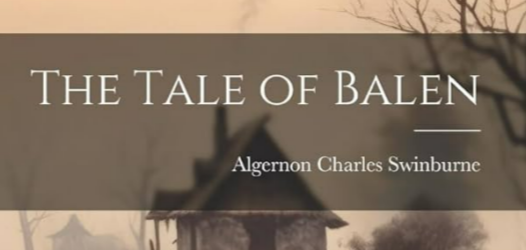Chapter IV-The Tale of Balen
byChapter IV – The Tale of Balen begins with a symbolic lens turned toward nature, where every sunrise is more than light and every sunset feels like loss. In this poetic landscape, hope is likened to the morning dew—glistening and fragile, soon vanished by time’s unyielding heat. Balen’s journey continues under skies that seem to mirror his own fate, ever caught between glory’s radiance and the looming shadow of downfall, where even triumph can feel like a prelude to sorrow.
Across the open moorland, the stillness is broken by tension. Launceor, inflamed by pride and jealousy, charges toward Balen, seeking to reclaim dignity he believes has been lost. Their duel unfolds not with mere force, but with the fury of storms clashing—each strike a shout of defiance, each parry a moment where fate waits to tip its hand.
Though Launceor is brave, he is no match for Balen’s skill. The battle ends with Launceor’s lifeless body on the field, the air still trembling from the final blow. What lingers, however, is not victory, but a hush that holds regret, for even justified conflict leaves behind its own sorrow.
As the dust settles, a maiden approaches, her steps slow and eyes filled with unbearable grief. Her voice trembles with anguish as she denounces Balen, not for cruelty, but for the consequence of justice done too swiftly. Without another word, she lifts Launceor’s sword and, in one motion, ends her life beside him—turning a battleground into a tomb of love and mourning.
This moment, stark and unforgettable, underscores the tale’s caution: even righteousness must tread carefully, for hearts are not healed by valor alone. The world around Balen feels colder, not because of the weather, but because tragedy seems to follow even his most honorable acts. What was meant as a duel of pride becomes a scene of shared ruin, observed now only by the wind and watching sky.
Not long after, the story shifts, offering a brief but warm light in the form of Balan, Balen’s brother. Their reunion brings comfort—a rare tenderness in a narrative thick with blood and warning. They speak not as warriors, but as kin, sharing memories, dreams, and the kind of hope only family can still hold.
This sense of unity brings strength to both, for in each other they see the last familiar piece of a life before chaos. Yet, their closeness, while joyful, hints at something deeper—a sorrow that waits just beyond the horizon. Even as they plan their path forward, the shadows in the distance stretch longer with every step.
Before they depart, they meet a mysterious figure who weeps not just for the dead but for the cycle that has consumed them. His words are cryptic, yet they sting with truth, forcing the brothers to question whether their quests are noble pursuits or threads in a larger web spun by fate. The moment leaves them quieter than before, their silence holding more meaning than speech.
The chapter paints every choice with consequence, where emotion and duty intertwine like thorn and rose. The tale is not about a single act but the ripples it sends, touching lives far beyond the battlefield. Here, honor is tested not in combat alone, but in the wake of what combat leaves behind.
Historical Arthurian stories often carry this blend of heroism and heartbreak, reminding us that greatness is often inseparable from loss. These legends reflect not just medieval values, but human truths—that those who fight for justice must also carry its cost. In Balen’s world, no deed is ever isolated; every sword drawn is a story written, for better or worse.
Modern readers may find resonance in this portrayal of cause and effect, where good intentions do not guarantee peace. Balen is not a villain, but a man caught between courage and consequence, his steps forward followed closely by echoes of pain. This duality keeps his tale alive across centuries.
By the chapter’s end, we understand more than Balen’s strength—we see his burden. The narrative invites us to reflect not only on action, but on aftermath. And as the story continues, the question lingers: can fate be shaped by the heart, or is it always one step ahead, waiting to claim even the bravest among us?

